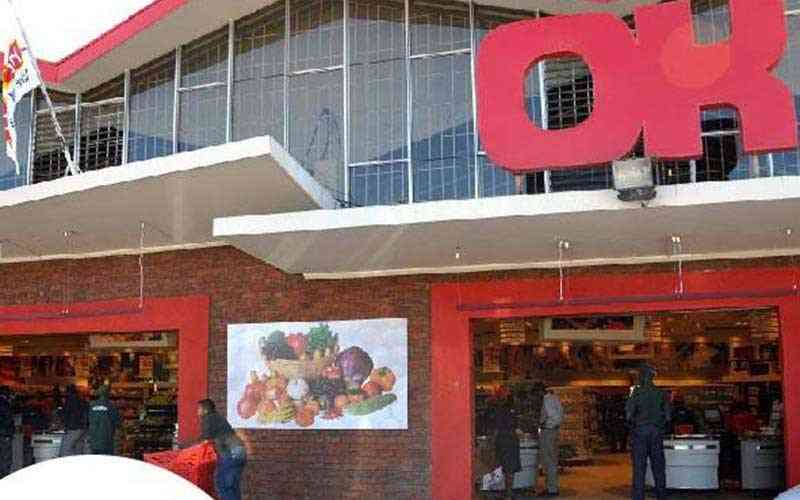
A DEBATE has been going on about whether retail giant OK Zimbabwe should “shape up or ship out” in the face of stiff competition from informal retailers.
Should supermarkets like OK Zimbabwe go bust, agriculture will suffer.
This is because agricultural output makes up 80% of goods sold by retailers.
In their latest financial update, OK said formal retailers were losing market share to informal traders. The group said it suffered an 8% drop in sales volumes from last year till March due to the impact of informal traders, who operate without paying taxes and charge cheaper prices.
Low disposable incomes also affected operations.
“The informal retailer is infamously using the black-market rate and marks the same products downwards causing ‘forced death’ on the formal retailer,” Max Karombo, the OK chief executive officer, said.
“Our major issue is the currency framework. With the passing of the elections and a new cabinet being set, we really look forward to resolving this issue for the country to put us on a footing of assured stability.”
But George Guvamatanga, permanent secretary in the Ministry of Finance and Investment Promotion, accused the OK management of failing to come up with innovative measures which ensure the company and other formal retailers survive the age of informal market growth.
- ‘Killer’ soldier granted bail
- Letter from America: The death of the Zimbabwe dollar shows the King has no clothes
- Letter from America: The death of the Zimbabwe dollar shows the King has no clothes
- US$4 billion mystery in Afreximbank, Zim deals
Keep Reading
Guvamatanga went on to say if he was the OK Zimbabwe board: “I would fire you because you will be useless management.”

“How do you complain about a tuck shop which pays five times more per square metre rent, does not have access to credit, and buys all the goods in cash right, because they do not have any access to credit?”
He gave the example of the South African informal sector, which is characterised by spaza shops, saying they control a huge stake of that economy, but formal retailers like Shoprite and Pick n Pay are still surviving.
Guvamatanga seems to forget that Zimbabwe is suffering from high inflation and endemic corruption.
While Shoprite and Pick n Pay in South Africa can leverage their sales on products like furniture and hardware, Zimbabwean supermarkets rely on agricultural products.
Most retailers have been limited to selling groceries because of hyperinflation.
The scope to diversify is limited.
But farmers have benefited from the current state of affairs because markets have been created for their produce.
Tongaat Hulett, which produces sugar, is also struggling because of competition from cheap imports.
Fresh vegetables are sold in supermarkets that have invested in refrigeration, but tuck shops hardly sell vegetables.
Promoting tuck shops will affect supermarkets in the same way the Zimbabwe United Passenger Company was brought to its knees by the commuter omnibuses.
Look at what is happening to public health institutions. We are destroying them and forcing people to seek medical treatment at private health institutions.
The urban water treatment system has broken down, pushing households to turn to borehole water for domestic consumption.
The Cold Storage Company has been replaced by unhygienic informal butcheries, which sell uninspected meat.
The day that we destroy large retail shops, we will regret because consumers will be exposed to substandard goods.
Money changers are running the foreign exchange, taking away a key role of the financial institutions. Most traffic lights are not working and, in some instances, street kids are directing traffic.
One could go on and on.
But the bottom line is that retailers are an important part of our agricultural sector, which is the backbone of our economy.
They must be protected and allowed to operate freely.
Retailers had set up systems allowing producers to receive payments after delivery.
Tuck shops cannot do this.
- Gwabanayi is a practising journalist and a farmer in his own right. — 0772 865 703 or [email protected]










